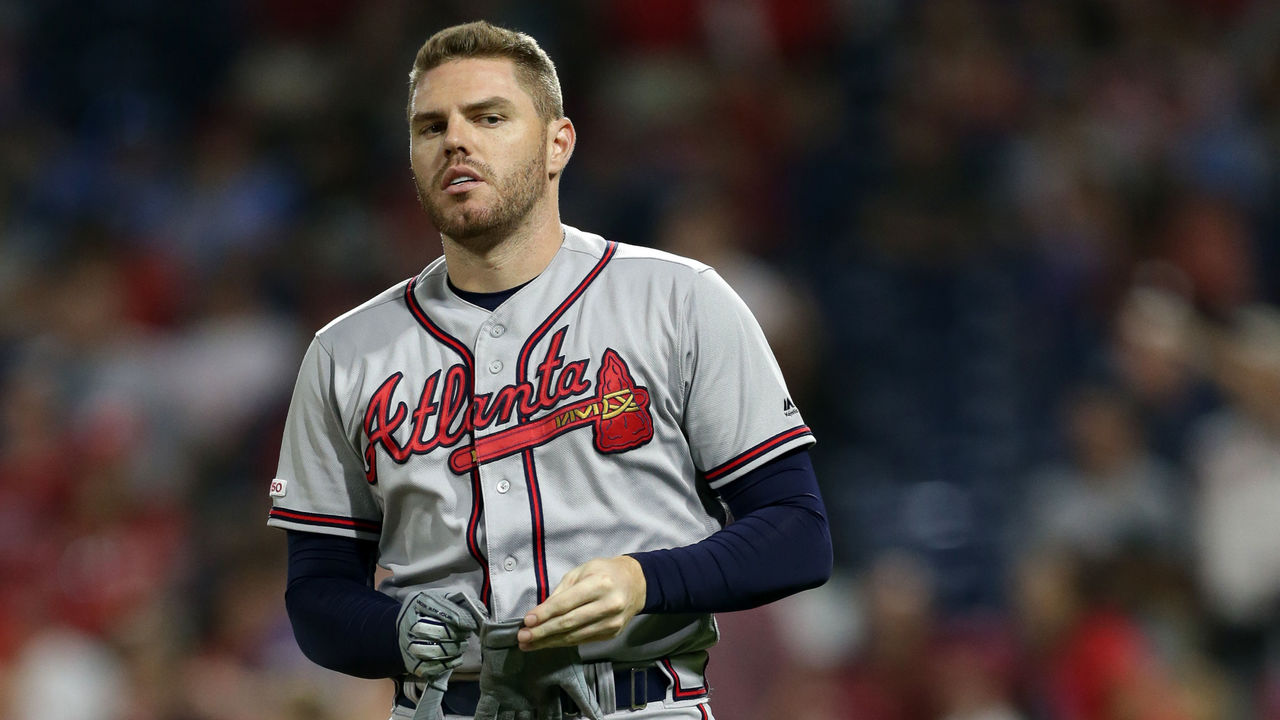Baseball is back. Let's hope nothing horrible happens
Freddie Freeman was praying for his life earlier this month.
Beset by a fever that spiked at 104.5 degrees, the 30-year-old first baseman feared the worst, that he could become a statistic, another life lost to a yet-to-be-contained pandemic that's already claimed more than 143,000 in the United States. Despite taking every precaution to insulate himself and his family, and notwithstanding the numerous biological and economic advantages supposedly shielding him from the brunt of the coronavirus, Freeman still found himself caught in the clutches of COVID-19, and with no other recourse as his temperature skyrocketed, he prayed.
"I've never been that hot before, and my body was really, really hot," Freeman told MLB.com's Mark Bowman. "So I said, 'Please don't take me.' I wasn't ready. It got a little worrisome that night for me."
It's within that morbid context that the 2020 season, shortened to 60 games and featuring a bevy of aesthetic and substantive tweaks, will finally begin Thursday, four months after the coronavirus forced Major League Baseball - and every other North American pro sports league - into a long hiatus. The pandemic has continued to maintain a firm grip on the U.S., but baseball is going to give it a go anyway, all the while figuratively crossing its fingers that Freeman's case was an anomaly rather than a cautionary tale.
That hope, however, is inconsistent with the data, which paints a foreboding picture as teams emerge from the relative safety of their summer camp bubbles and start crisscrossing a country currently registering more than 66,000 new cases per day, according to The New York Times. The five states hit hardest by the virus of late - Florida, Texas, California, Georgia, and Arizona - are home to more than a third of the league's teams.
The situation is so dire in the United States that the Canadian government denied the Blue Jays permission to play their home games in Toronto this summer, citing repeated cross-border travel as too great a risk to the public health. The situation won't improve in the near term either, which even President Trump admitted Tuesday.
And even with socially distanced dugouts and spitting bans and every conceivable resource in the world, baseball isn't immune. Throughout this two-month high-wire act, with flights and bus rides and hotels, people will get sick. The league's health-and-safety manual is a robust document, but it's not a vaccine. It also doesn't govern players' behavior away from the ballpark.
Moreover, no testing protocol is infallible. False negatives happen. Safety isn't guaranteed for the players, and it's even more tenuous for those who aren't under the auspices of Major League Baseball, the scores of service workers needed to make professional baseball happen. And while everybody involved seems to be fully aware of the risks endemic to this season, that won't make it any less horrific, nor MLB any less culpable, should the worst happen.

Fortunately, Freeman's fever passed, and he rejoined his teammates last week following two negative tests. He may be in the Atlanta Braves' lineup Friday for their season opener against the New York Mets. (Whether he deals later in life with lung damage, a potential long-term consequence of COVID-19, remains to be seen.)
But what if he hadn't? Would baseball have just carried on? It's a sick hypothetical to consider, whether the loss of life is simply the cost of doing business in this climate, but it's a calculus the league may well have to make at some point this summer. In any event, Freeman's harrowing experience exemplifies why it's so difficult to embrace baseball's long-awaited return with anything other than ambivalence. How can we rejoice about Opening Day knowing the season's potential cost?
And that cost, it should be noted, has diminished the value of the game itself. Baseball, in its current iteration, can't help shepherd us back to normalcy. Instead, with fake crowd noise being pumped into empty stadiums where players don masks in the batter's box, baseball is itself a potent reminder of how far off normal still is.
At this point, though, all we can do is compartmentalize, mentally separating baseball's unbridled awesomeness and the excitement of this wacky, 60-game season from its dystopian context, while keeping our fingers crossed. It's highly fraught and probably unethical, but baseball is back, at least until something horrible happens.
Hopefully, nothing horrible happens.
Jonah Birenbaum is theScore's senior MLB writer. He steams a good ham. You can find him on Twitter @birenball.